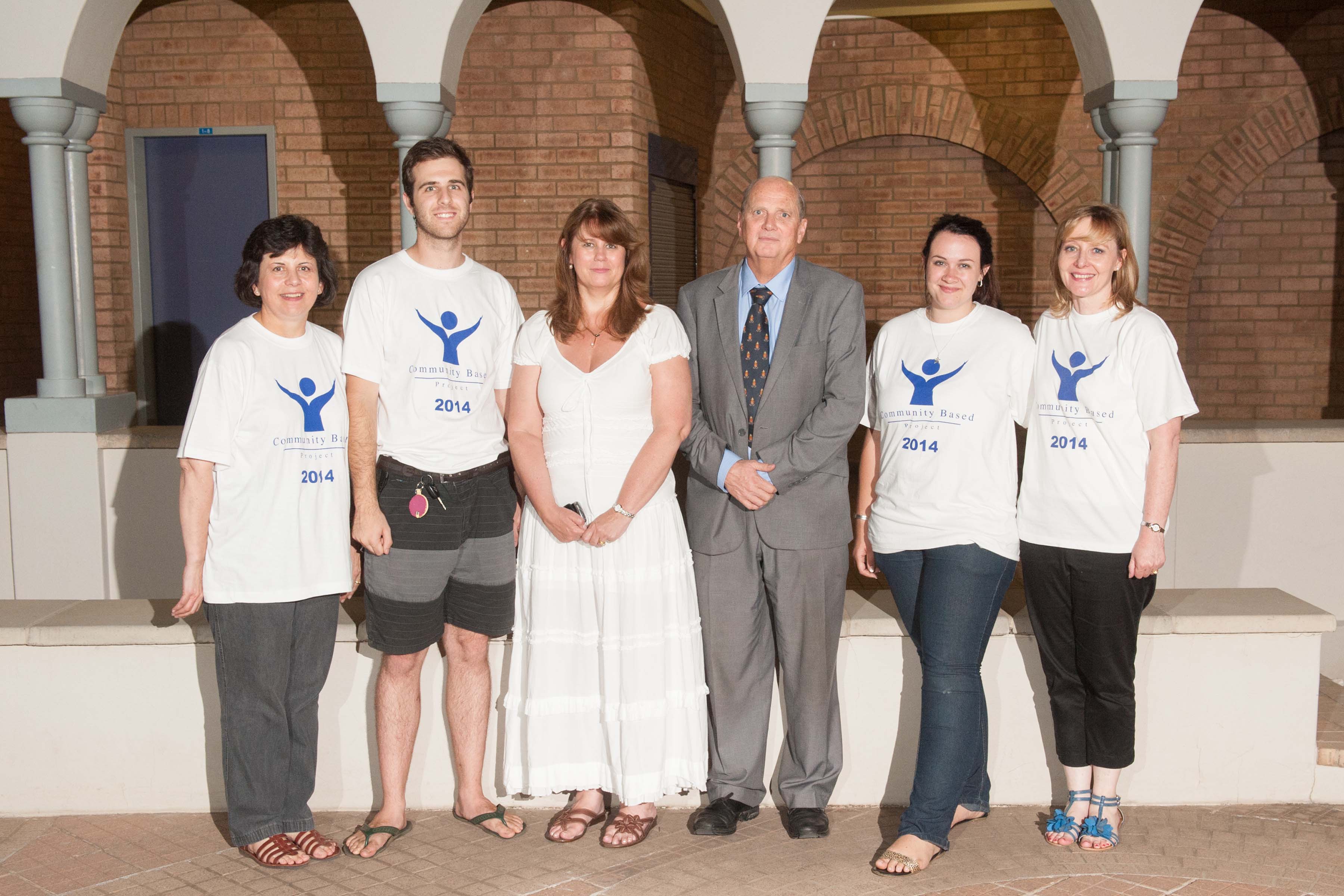Posted on February 23, 2014
The Faculty Engineering, Built Environment and Information Technology recently celebrated its contribution to the 2025 vision of the University to make a difference locally. The Community Based Project (JCP) module students of the Faculty contributed through 594 community projects to the Community Engagement goal of the University by strengthening the University’s impact of South Africa’s social and economic development.
Representatives of the community partners and JCP students from 2013 were acknowledged for their commitment to the Faculty’s JCP-module at a special event. The success of the JCP-module and the Faculty’s involvement in communities can be contributed to the sustainable relationship with more than 400 communities partners. Community partners that have been involved with the module during the last few years were invited. Without their support the students will not have been able to do their community outreach projects successfully.
During 2013, 594 projects were undertaken by 1647 students. Students had to work at least 40 hours in the community accumulating to 65 880 hours of service delivery in communities. The most popular projects were assistance with maths and science at schools, computer training for communities, design and maintenance of websites and various projects at the National Zoological Gardens of South Africa.
JCP alumni students that were responsible for the transportation of some of the students to and from their projects as well as the mentors of on-going projects received a certificate of recognition for their hard work and valuable contribution.
The students of 2013 completed excellent projects and evidence was shared by Dr Jordaan (lecturer responsible for the module) of the impact the students made in the communities.
Each student received a teddy bear that is a replica of the module's mascot, Johannes Christoffel Pretorius.
Best projects for 2013:

Please video their YouTubes videos:
Best Project: National Zoological Gardens: Owl and Bat Houses (Group 26)
Best Project: Good Hope Centre (Group 188)

Students received recognition in different categories.
(Please view their YouTube videos as listed below)
Computer Training Project: Mamelodi campus (Group 54)
SEIDET Computer training Project (Group 87)
Computer Repair Project: Pretoria Secondary School (Group 581)
National Zoological Gardens: Ball for the Rhino (Group 278)
National Zoological Gardens: Bengee Feeder for Hyena (Group 200)
Innovative Project: Serene Park (Group 291)
Renovation Project: Pennies Nursery School (Group 347)
Renovation Project: Pretoria Primary School (Group 321)
Library Project: Himalaja Secondary School (Group 75)
Library Project: Boikgantsho Primary School (Group 235)
New Project: Cooking for Res (Group 147) (one of 6 video's)
Project alone: SPCA (Benoni) (Group 342)
Best YouTube: Agatha Community (Group 417)
Best Project: National Zoological Gardens: Owl and Bat Houses (Group 26)
Best Project: Good Hope Centre (Group 188)
Students that assisted as drivers in 2013: Ivan Mbulaheni & Christiaan van der Merwe
The Dean of the Faculty, Prof R Sandenbergh, Head of Department Informatics, Prof Alta van der Merwe and Dr Martina Jordaan

Students that were mentors for 2013: Keletso Kgotse, Marno, Zietsman, Paul de Kock, Pentia Kesan
The Dean of the Faculty, Prof R Sandenbergh, Head of Department Informatics, Prof Alta van der Merwe and Dr Martina Jordaan

Student assistance for 2013: Martin Schoeman, Jami-Lea Easton
Administrative assistance for the module: Rhona van der Merwe
The Dean of the Faculty, Prof R Sandenbergh, Head of Department Informatics, Prof Alta van der Merwe and Dr Martina Jordaan

Copyright © University of Pretoria 2025. All rights reserved.
Get Social With Us
Download the UP Mobile App